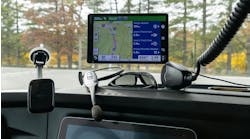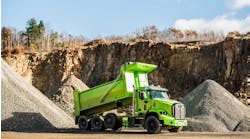Torc, an independent subsidiary of Daimler Truck AG, recently signed a leasing agreement for a facility located in Hillwood’s AllianceTexas development that will serve as Torc’s autonomous truck hub in the Dallas-Fort Worth area. The new location will be a hub for Torc’s autonomous testing efforts, customer freight pilots, and future commercialization slated for 2027.
The site will feature a customer experience center, offices, and dedicated control centers for fleet management and operations. Torc’s expansion in the Dallas-Fort Worth metro area positions the company for the next phase of autonomous driving and provides a strategic advantage because of its proximity to a major freight route between Dallas and Laredo, Texas, on Interstate 35.
"Establishing our presence in the Dallas-Fort Worth area, a key region for the future of autonomous trucking, is a critical milestone for Torc," CEO Peter Vaughan Schmidt said. "This new hub will enable us to better serve our current and future customers, enhance our operational capabilities, and drive forward the adoption of autonomous technology in the logistics industry. As we work toward commercialization, the new hub will give us access to talent, resources, and routes that we didn’t previously have, and we’re excited about the growth opportunities ahead."
See also: Autonomous trucking check-in: Where freight's future stands mid-decade
The hub will be located at 13119 Old Denton Road in Fort Worth, and Torc plans to start occupying the new space early this year. The site includes a 17-acre facility and 22,000 square feet of office space. The facility will be built out over the first half of 2025, ensuring it complies with the standards required for autonomous vehicle operations.
With this announcement and the company’s October 2024 milestone of meeting advanced validation trials using the new generation of Freightliner Cascadias on multi-lane closed courses, Torc seems to be on track with its 2027 commercialization plan, which includes three principles:
- Economic viability: The company will focus on developing an economically viable product for customers. This will involve understanding the entire value chain of the freight industry, not just the value chain of the truck going down the road.
- Scalability: The company’s product must be scalable for various trucking routes. This will involve recognizing that few fleets in the freight industry operate the same way.
- Safety: Safety is an absolute necessity in this industry. The company will work to build and sustain trust with regulatory bodies and the public.




